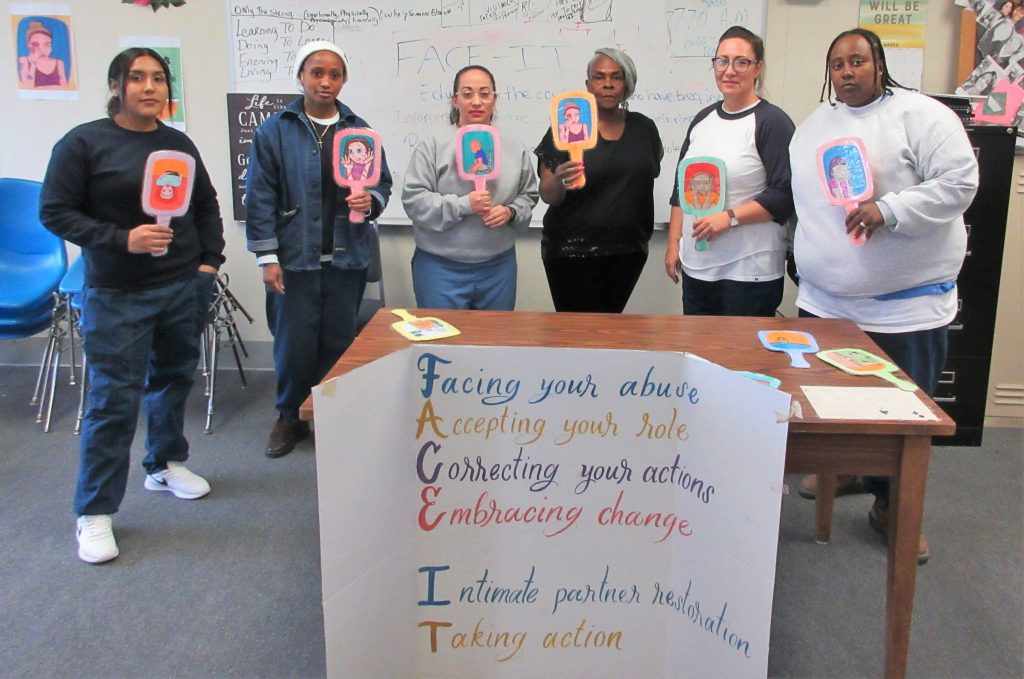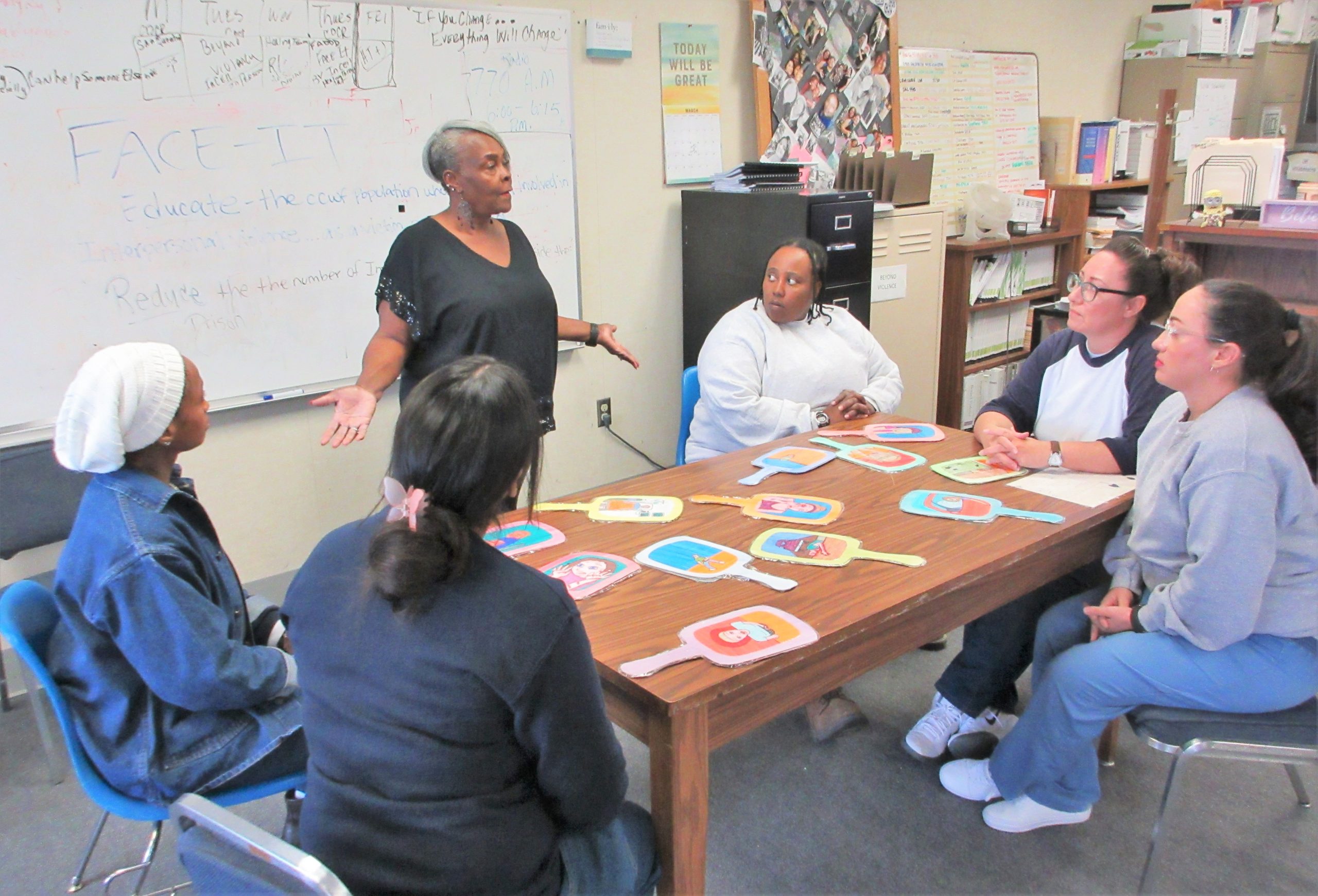Editor’s Note: International Women’s Day is celebrated globally on March 8. It serves to celebrate women and bring attention to issues such as gender equality, reproductive rights and violence and abuse against women. CDCR is proud of its staff and population in their efforts to pursue trauma-informed and gender-responsive rehabilitation.
The participants in the FACE-IT rehabilitation group at the Central California Women’s Facility have described themselves as “perpetrators.” All on occasion have assaulted fellow incarcerated people and staff. Most are serving life sentences with or without the possibility of parole.
Yet group members express hope and optimism about their future. They are learning to change their thinking and their controlling behavior day by day.
“I always saw myself as a victim, someone who had to lash out to protect myself, someone who victimized my victims,” said Janette Hernandez. “I’m finally realizing I have a choice in how I lead my life. It’s incredibly empowering. I have the power every day to make better choices.”
FACE-IT is among a host of rehabilitative programs offered to women through the California Department of Corrections and Rehabilitation. FACE-IT was created by Velda Dobson-Davis, a long-time CDCR employee and who “retired” as a Chief Deputy Warden in 2012. Dobson-Davis, who is certified to offer programs focused on domestic violence, emotional neglect and parenting, developed several rehabilitative programs.
Most of these programs start by participants looking at their own past trauma, usually long histories of abuse and domestic violence. As Dobson-Davis said of the FACE IT group: “Without fail, these perpetrators were once victims.”
FACE-IT then requires an internal reckoning. Group members draw images of victims in a “mirror” to reflect and imitate the faces of different victims and forms of abuse. At every meeting, participants are encouraged to dig deep to think about those they’ve harmed and understand their role in their commitment offense. The supportive group dynamic helps them to lower their defenses, acknowledge their actions and take responsibility. From there, they develop new strategies to deal with relationships. Incarcerated people who have graduated from the program serve as facilitators during weekly group discussions.
Group members said by working through their trauma and dropping their controlling or defensive attitudes, they allow themselves to feel empathy and compassion. They get along better with their roommates and their families. Their lives are happier.
“The FACE IT facilitators have gone from being victims to victimizers to Hidden Healers who gladly share their journey to help others,” Dobson-Davis said. “They learn new coping skills and have a desire to live a better quality of life.”
CDCR created the Female Offender Program Services (FOPS) as part of its long-term commitment to improving outcomes for those females living in our institutions. A number of gender responsive strategies and trauma-informed services are available to women and men. FOPS exists to provide incarcerated women with gender-responsive supervision, treatment and services that increase opportunities for successful reintegration and reduces the number of women in California institutions.
“I was honored to be a member of the team when FOPS was created in 2005 as a part of the re-organization and the Department’s desire to put Rehabilitation programs in (the department),” Dobson-Davis said. “CDCR is one of the only Departments of Corrections in the United States that places that value in their name.”
Robin L. Harrington, FOPS Chief Deputy Administrator, said Dobson-Davis’ work has been essential to the success of the FOPS mission. “Ms. Dobson-Davis teaches classes at CCWF with passion and commitment to help the incarcerated women see themselves for who they are rather than what they’ve done. Her work helps them to facilitate real change in their lives.”
Learn more about the FOPS program.
Learn more about International Women’s Day.
By Terri Hardy, Public Information Officer II
Office of Public and Employee Communications

For media inquiries, e-mail the Office of Public & Employee Communications.
Read more rehabilitation stories.
Follow CDCR on YouTube, Facebook, X (formerly Twitter). Listen to the CDCR Unlocked podcast.
